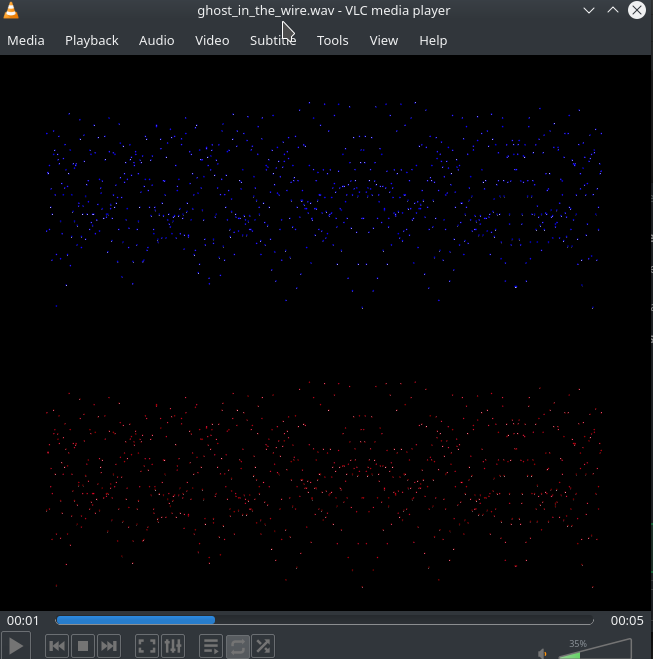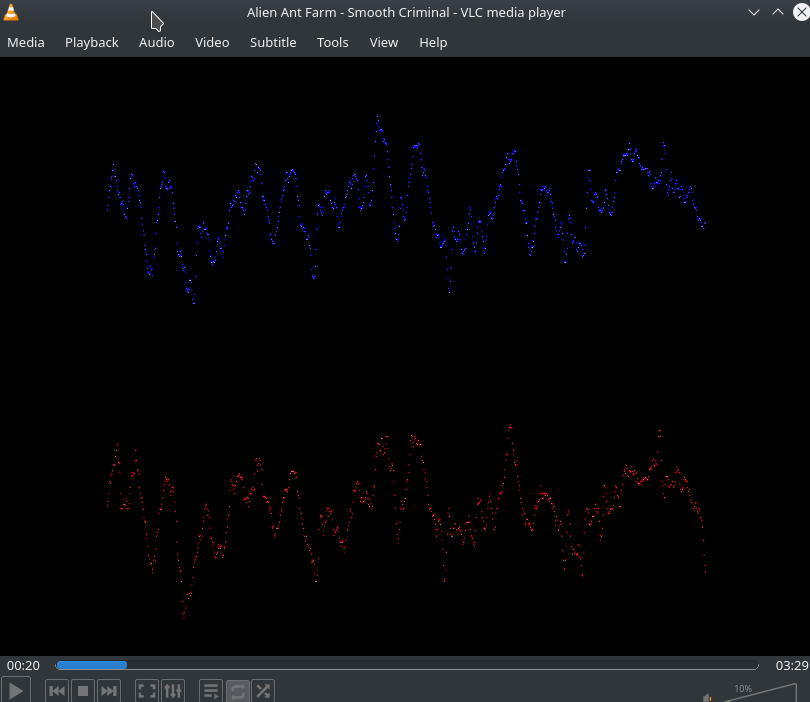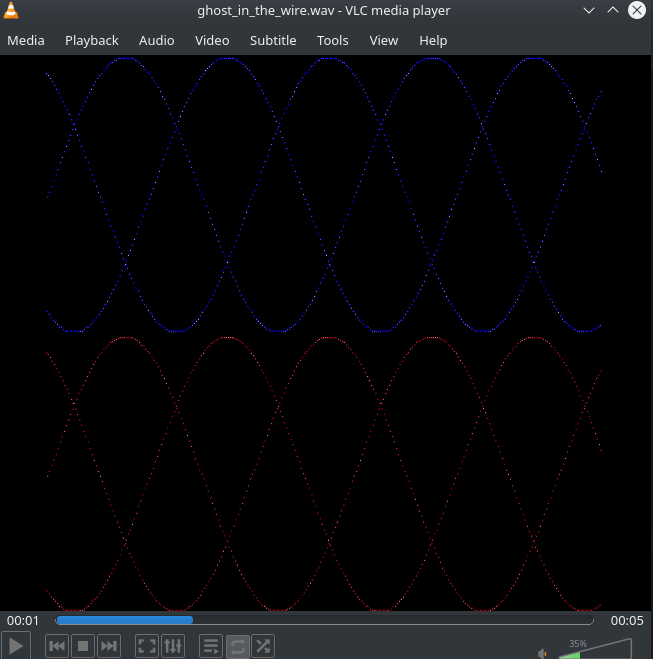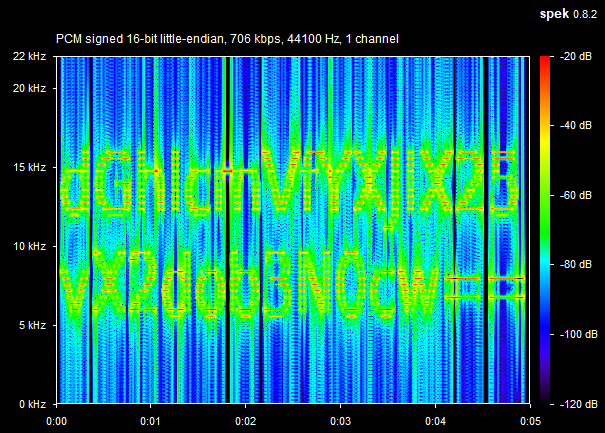A CTF in Luxembourg - Looking for a Ghost¶
Published on 05.06.2020
A couple month’s back, while browsing reddit, I stumbled onto a CTF held in Luxembourg. Having never participated in a CTF, I though I give it a try.
Note
The write up below contains the answer to one of the challenges, don’t read it if you wan’t to give it a go.
The event was supposed to happen on location - but COVID - and so they moved to an online only format, which I forgot about and ended up never attending. Ups, shortest write up ever… Never the less, they provide some challenges online, so I could still try some out.
At the time of writing, I only solved two challenges, but have tried many.
That’s part of the learning process I guess. As my day job consists of creating
Web-Applications, I wasn’t so eager to try the only Web challenge, but was drawn
to the Steganography category. More specifically Ghost In The Wire.
The challenge¶
Yesterday someone had the audacity to call me in the middle of the night! It was just a few seconds long and sounded strange, maybe it was a ghost?! I can’t but wonder what it was trying to tell me. Can you help me figuring it out? Maybe we need to look at it trough different glasses.
They provided you with a .wav file.
Ok, so it’s a audio file, first things first; let’s listen to it… It’s 5 seconds long, contains a lot of high pitch noise with short breaks in between. Maybe, reducing the playback speed could help - Nothing. VLC has a option vo visualize a audio stream:

Looks random, but it shouldn should it? For comparison, here how a normal song would look with the same visualization:

and sometimes you would get a perfect waves in the challenge file:

So something is definitely special with the file. Then I remembered a video a work colleague once showed about the creation of the Doom soundtracks by Mick Gordon and that you can hide text and images in a song. And if you can hide data in a actual song, you can definitely hide something in a sound file that isn’t close to any actual music. A quick search later I’ve downloaded and installed the Acoustic Spectrum Analyser Spek and:

But wait, there is more! The thing to note is that the string ends with a double equal sign, and that sort of thing screams base64.
> echo "dGhlcmVfYXJlX25vX2dob3N0cw==" | base64 -d
there_are_no_ghosts
And there is the flag.